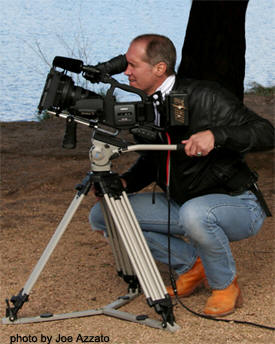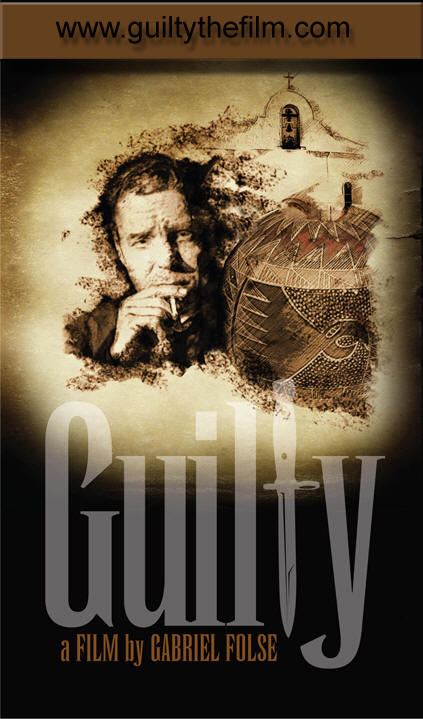
Director's Statement

|
It has been a dream of mine, since about 1993, to
create a 1940's style studio system where the
actors and the crew feel supported and their
dreams valued and nurtured. We do it our way
with the ends in mind, the end being to have fun
and to make great movies and a good living, to
support our families by doing what we love. I
met Greg McCreight and he shared a similar vision and we decided to make a movie together.
When I began writing GUILTY, I already had this detective character in my mind and I have been a long time fan of Columbo. I wanted to make a film that was an amalgam of noir, 1950's stylized hard boiled Private Eyes, and a more sensitive modern crime solver with a dash of THE VERDICT thrown in. I like detective stories because the world of the P.I. is always filled with interesting people he must deal with, is friends with from a mysterious past life or who will soon be friends with as a result of working the case. These characters lend themselves to continuing stories. I guess you could say that GUILTY arose as a chance to give life to this detective in my mind and to allow Greg McCreight, the co-producer, a chance to showcase his skills as an actor. GUILTY also enabled us to make a small film, with depth and interest, and allow us to work with so many people we admire in the acting and filmmaking community here. The main theme in GUILTY is that love reveals itself in a myriad of ways and motivates us to take action. This is shown through the main character and through the many father and son relationships that you see throughout the film. These relationships are the storylines that I identify most with. My parents divorced when I was three and I never saw my father again. In the film, there is the love the father, Roberto Gonzalez, has for his son Benito; El Cerolito remembers his fatherís advice; the Mayor will do anything to secure his sonís love; and Frank will do whatever it takes to gain the admiration of and to make his absence right with his little boy. GUILTY is a movie where one man has a chance at redemption and finds a measure of it when he decides to help his son. The pathway is twisted and the outcome is imperfect, but his love for his son propels him to see it through, even if it means being humiliated and shamed. - Gabriel Folse
|
site designed by BEABAH web design